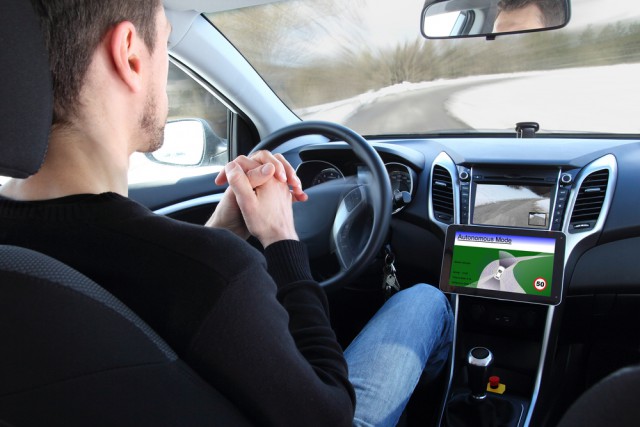
Self-driving cars open up a world of possibilities, and people want parental controls to be one of them. And it is not just parents who are for it, even though they make up the demographic that this feature is meant for, as young people are also favoring it -- where have all the rebels gone?
The ability to control the speed limit, curfew time and the number of passengers was chosen as the leading parental control by 84 percent of consumers. Limiting the geographic range came in second, with only 61 percent choosing it, while communicating with the driver using a displayed text came in third, chosen by 60 percent of consumers.
The findings come from a survey conducted by Carnegie Mellon University's College of Engineering, which had 1,000 people, between the ages of 18 and 70, polled about "freedom-foiling" features in self-driving cars. Now, here comes the interesting part, as we all know that we can expect parents to be all-for parental controls.
A whopping 81 percent of the respondents between the ages of 18 and 24 were in support of such features. Those are young drivers, who are less experienced and more likely to get into accidents. It is good to see that they are aware of the benefits that such a feature might provide.
"In 2013, 2,524 teenagers perished in motor vehicles crashes, making vehicle accidents the leading cause of death for teenagers. Compared to older drivers and miles driven, teen drivers are three times more likely to be in a fatal wreck. Young, inexperienced drivers tend to speed and drive too fast for road conditions. Further, teens are more likely to crash when they have teen passengers in the car", notes the report.
The vast majority of women -- 87 percent to be exact -- were in support of the leading parental controls, and so were 91 percent of respondents between the ages of 66 and 70. When it comes to limiting the geographical range, only 54 percent of young drivers between the ages of 18 and 24 found this idea attractive, compared to 65 percent of drivers between the ages of 36 and 45.
Young drivers (in the aforementioned age group) surprise once again, as 69 percent of them are fine with the idea of having a parental text display in the self-driving car. In contrast, only 53 percent of respondents between the ages of 56 and 65 find such an option to be useful. More women (63 percent) than men (57 percent) support it.
By the looks of it, when self-driving cars are commonly available, there will be fewer accidents involving young drivers, and happier parents and grandparents. It sounds idealistic, but, who knows, maybe young people of the future will be much more responsible.
Photo Credit: RioPatuca/Shutterstock

